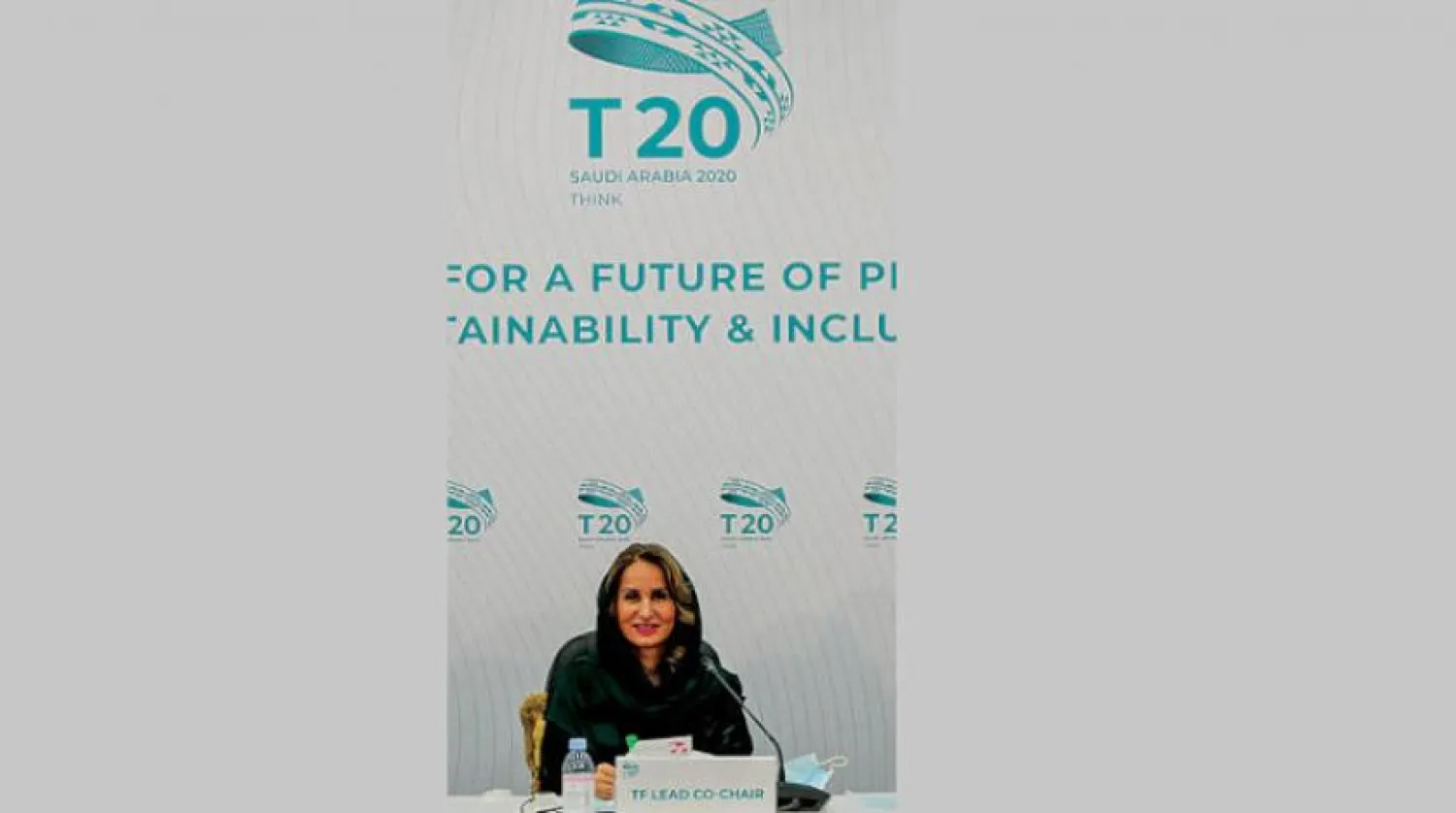Saudi Princess Maha Bint Mishari, who is co-leading the migration and young societies task force at the Think 20 (T20) engagement group of the G20, revealed that recommendations presented by her team to the G20 presidency promote increased productivity by investing in human capital.
Proposals by the task force focus on boosting productivity through increasing youth and women involvement.
“Young societies are a necessary and important component at the present time, especially in the Arab region, and specifically in Saudi Arabia, which has a high percentage of youth,” Princess Maha noted.
She also pointed out the importance of raising technical awareness, especially with regard to distance education, and called for building a special infrastructure for distance learning.
Princess Maha, in an interview with Asharq Al-Awsat, said that the T20 taskforce she is overseeing dealt with the file of migration and young societies through the scope of macro and microeconomic policies, unemployment, education, the labor market, intergenerational participation, regional conflicts, and voluntary and forced migration.
Recommendations endorsed by the taskforce, according to Princess Maha, will aid in achieving the social and economic integration of refugees and migrants and help provide basic services and education for migrant and refugee children.
They will also diagnose the social, political and economic impacts of migrants, and migration mechanisms.
As for challenges emanating from demographic change, Princess Maha said that the taskforce had proposed a score of measures that could help.
These measures include extending the retirement age, investing in education, vocational and technical training, expanding the financial framework, as well as considering public spending tax reforms, comprehensive reforms of public pensions, social security and healthcare schemes.
On how to divide global burdens resulting from forced migration, Princess Maha said: “The G20 Protocol on Forced Migration solves the problem of dividing the burdens of forced migration, and guarantees life in safety and dignity.”
She also suggested integrating immigrants through training and education.
This will help bridge the employment gap in host countries where the elderly are predominant in the population.
Princess Maha stressed that investing in the education and training of local immigrants will improve the prospects for their integration.
She called for the establishment of a virtual communication network dedicated to offering advisory services to refugees to facilitate integration in host countries.
This can be achieved through launching refugee portals in which all government educational, medical and legal services are provided.









